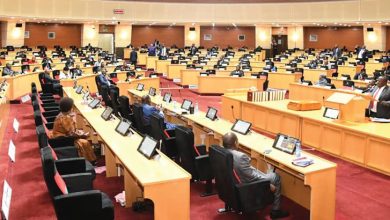Supporting mothers, babies after birth
When Miriam Mbewe gave birth at Mponela Rural Hospital in Dowa, she remembers the mix of joy and anxiety she felt as she waited for her new-born.
Hours later, a nurse brought her child, alive and breathing well, and Mbewe’s heart swelled with relief.
For many mothers, even after a successful delivery, anxiety lingers until they hold their babies, hear their cries, and feel their heartbeats.
What Mbewe did not know was the effort that went into ensuring her baby’s first breath outside the womb.
Many new-borns struggle to breathe, requiring immediate support.
According to the hospital’s doctor in-charge, Owen Chipewa, Mbewe is one of the fortunate mothers to deliver after the facility received much-needed medical equipment, including oxygen concentrators that help babies, mothers and patients with breathing difficulties.
“We are in better times now because we have this equipment. Two years ago, it was a real struggle.
“At the end of the day, a mother expects to see a live baby and now we can better ensure that happens,” said Chipewa.
This improvement was made possible through the efforts of Nation Publications Limited (NPL) and its partners.
Through Mother’s Fun Run (MFR) initiative, they mobilised resources to support the Dowa District Health Office which was previously facing severe equipment shortages.
Dowa District Health Office matron Constance Malanga said this success story is not limited to Mponela Rural Hospital but extends to the district hospital and seven other health facilities that benefited from MFR.
“These success stories are echoed across health facilities in Dowa. The MFR contribution has been significant.
“Many babies need artificial resuscitation after birth and the resuscitaires and oxygen concentrators we received have made a big difference,” she said.
Before the MFR donation, the district hospital faced major challenges, including a broken resuscitaire in the operating theatre and a shortage of oxygen concentrators which were in high demand but few in supply.
“Now, we have a functioning resuscitaire in the theatre. If a baby cannot breathe after birth, we can resuscitate it immediately.
“We also have at least three oxygen concentrators in each department which has greatly improved our ability to support patients,” she added.
The oxygen concentrators have had a particularly profound impact in the hospital’s nursery, where premature babies and those with breathing difficulties receive care.
Donaphagie Gondwe, a nursing and midwifery technician in the nursery ward, explained that the additional oxygen concentrators from MFR have made their work more manageable, allowing them to help more babies at a time.
“We receive many babies who need breathing support. The donation of more oxygen concentrators has eased our workload, enabling us to assist more babies simultaneously,” said Gondwe.
Beyond oxygen concentrators, MFR also donated other critical equipment, including patient trolleys, wheelchairs, fetal dopplers for assessing the progress of babies in the womb and patient monitors that help doctors track patients’ health.
Gondwe highlighted the importance of the fetal dopplers, noting that they have significantly improved their ability to monitor unborn babies.
“These devices are crucial. Before, we used manual methods, but now with the digital dopplers, we can make more accurate decisions,” she explained.
NPL business development manager Chimwemwe Jere expressed his satisfaction with the positive outcomes in Dowa.
He hopes that other districts benefiting from the MFR initiative will see similar improvements and share their success stories.
“We are thrilled to hear such encouraging stories from Dowa. We hope that all the districts we’ve supported will continue to benefit from these donations.
“It’s important for our partners to see the real impact their contributions are making, and we believe stories like this will encourage them to keep supporting the initiative,” said Jere.
The MFR initiative focuses on improving maternal and neonatal health by mobilizing resources from NPL’s partners and well-wishers.
Each year, it supports districts with the greatest need, providing vital equipment that directly enhances health service delivery for mothers and new-borns.
As the story from Dowa illustrates, these contributions are more than just donations—they are saving lives.




